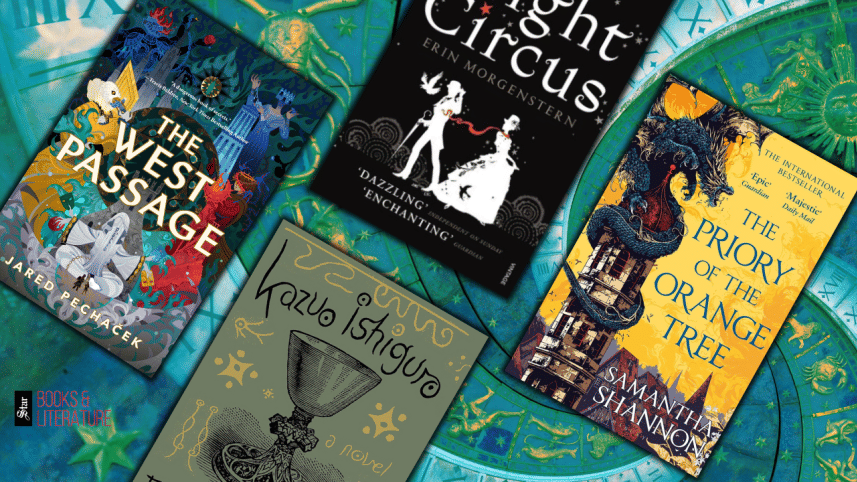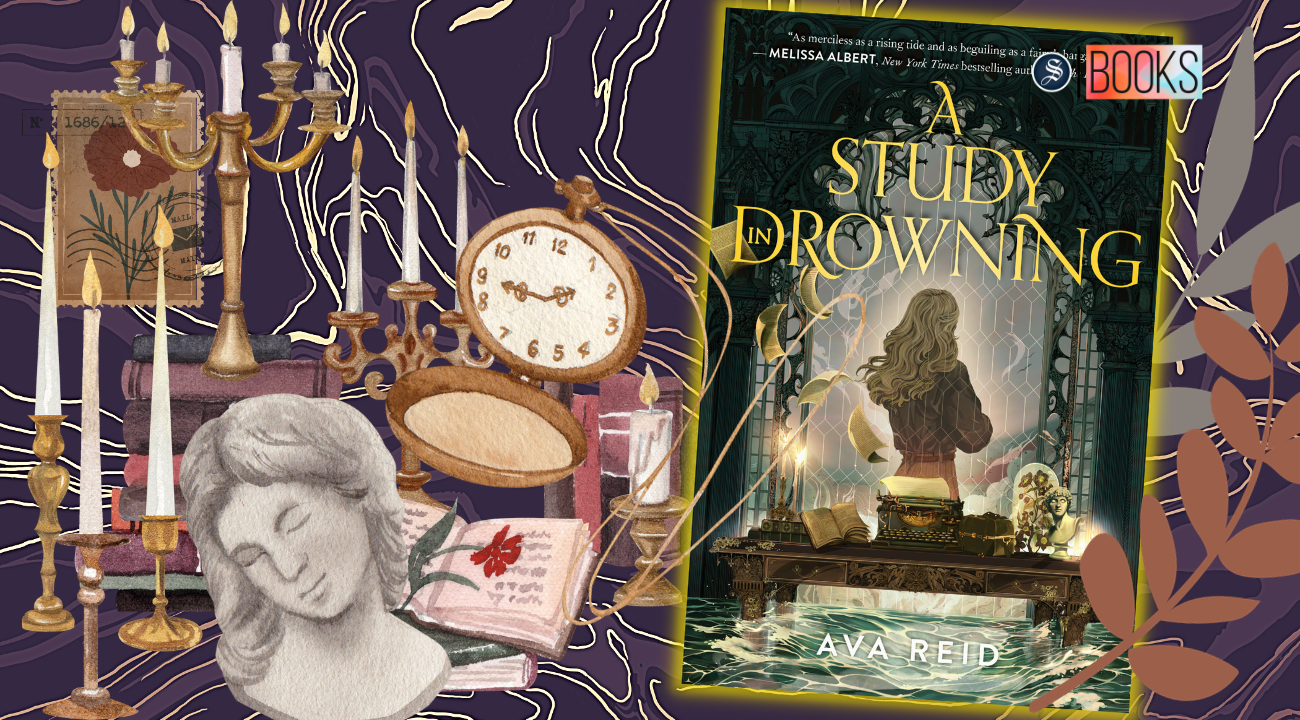7 lyrical fantasy books: Where prose becomes poetry

When most people think of fantasy, they picture sprawling wars, fire-breathing dragons, and quests for crowns. But another branch of the genre has been quietly flourishing: lyrical fantasy. These are stories defined less by plot twists or battlefield clashes than by the music of their sentences. The pace is slower, the atmosphere denser, the language carrying as much weight as the events it describes. These are books that invite you to pause over a line, to linger in a paragraph, to lose yourself not in spectacle but in rhythm.
Here are seven works of lyrical fantasy, arranged from the most recent to the most enduring.
The West Passage (2024)
Jared Pechaček
Weird fantasy / Literary fantasy
"Think: our stories are about ourselves. That's why we care about them. That's how we understand them. If we vanish, who will be left to understand and care?"
A newer addition to the canon, The West Passage carries the kind of strangeness that lingers in the bloodstream. Pechaček's prose is hypnotic, a dreamlike narrative where reality bends and the familiar becomes uncanny. It is not a book to be consumed quickly; its rhythm is slower, its textures layered. The writing feels like standing in twilight—half in light, half in shadow—where the world itself seems to hum.
Piranesi (2020)
Susanna Clarke
Mystical fantasy / Philosophical allegory
"It does not matter that you do not understand the reason. You are the Beloved Child of the House. Be comforted. And I am comforted."
Clarke's Piranesi is both labyrinth and lullaby. Its narrator, alone in a vast house of endless halls and statues, writes in a voice that is guileless, tender, and strange. The book is a meditation on solitude, faith, and the wonder of being alive in a world that resists explanation. Clarke's sentences float with a deceptive simplicity that deepens into awe, as if each word carries a hidden echo.
The Buried Giant (2015)
Kazuo Ishiguro
Literary fantasy / Mythic allegory
"Who knows what will come when quick-tongued men make ancient grievances rhyme with fresh desire for land and conquest?"
Ishiguro may not be thought of as a fantasy writer, but The Buried Giant proves how fluid genre boundaries can be. In this tale of an aging couple wandering through a mist-haunted Britain, the fantasy is quiet, almost spectral. Ishiguro's prose is spare, yet it glimmers with melancholy and restraint. The silences between words matter as much as the words themselves, creating a novel that is both myth and elegy.
The Night Circus (2011)
Erin Morgenstern
Romantic fantasy / Historical fantasy
"You may tell a tale that takes up residence in someone's soul, becomes their blood and self and purpose. That tale will move them and drive them and who knows that they might do because of it, because of your words. That is your role, your gift."
Perhaps the very emblem of modern lyrical fantasy, The Night Circus is a tapestry woven in canvas cloth, smoke and starlight. Morgenstern's circus is not just described—it is conjured. You can almost taste the caramel apples, hear the rustle of tents, and feel the chill of midnight air. The prose is lush but never heavy, enchanting without suffocating. It is a novel that demands to be savored slowly, like fine chocolate, each word dissolving on the tongue.
The Name of the Wind (2007)
Patrick Rothfuss
Epic fantasy / Hero's journey / Bildungsroman
"My parents danced together, her head on his chest. Both had their eyes closed. They seemed so perfectly content. If you can find someone like that, someone who you can hold and close your eyes to the world with, then you're lucky. Even if it only lasts for a minute or a day. The image of them gently swaying to the music is how I picture love in my mind even after all these years."
There is no way around it: Rothfuss divides readers. For some, his prose is indulgent; for others, it is symphonic. The story of Kvothe—musician, magician, myth—unfolds like a ballad, each chapter another verse. The book hums with rhythm, not just in its descriptions but in Kvothe's deep connection to music. Even when the plot slows, the beauty of the language carries you, reminding us that sometimes the words themselves are the journey.
Tigana (1990)
Guy Gavriel Kay
Historical fantasy / Political fantasy
"Memory was talisman and ward for him, gateway and hearth. It was pride and love, shelter from loss: for if something could remembered, it was not wholly lost. Not dead and gone forever."
Guy Gavriel Kay has long been celebrated for his ability to write fantasy that reads like history. Tigana is his masterpiece: a sweeping tale of memory, music, and the struggle against tyranny. What makes it lyrical is not merely the poetry of his language, but the weight of silence within it—the grief of a name stolen, the ache of a homeland remembered only in song. Kay's prose aches, and in that ache is beauty.
A Wizard of Earthsea (1968)
Ursula K. Le Guin
Classic high fantasy / Coming-of-age
"Only in silence the word, only in dark the light, only in dying life: bright the hawk's flight on the empty sky."
Le Guin's sentences are as clear and elemental as the sea itself. A Wizard of Earthsea tells the story of Ged, a boy who becomes a mage, but it is less a tale of power and more a meditation on balance, shadow, and the cost of naming. The simplicity of the prose belies its depth. Like a poem etched in stone, every word feels deliberate, ancient, necessary. Reading Le Guin is like listening to a tide: steady, timeless, eternal.
What binds these books together is not plot or setting, but sound. They remind us that language itself is magic. Where epic fantasy sweeps us up in spectacle, lyrical fantasy asks us to linger—to taste the words, to breathe in the rhythm, to find beauty in stillness.
Honourable Mentions: Uprooted (2015) by Naomi Novik, The Priory of the Orange Tree (2019) by Samantha Shannon, and Deathless (2011) by Catherynne M. Valente.
Sarazeen Saif Ahana is an adjunct member of the faculty at Independent University Bangladesh and Southeast University where she teaches English and the importance of beautiful prose in a world which seems to forget poetry sometimes.



 For all latest news, follow The Daily Star's Google News channel.
For all latest news, follow The Daily Star's Google News channel. 

Comments